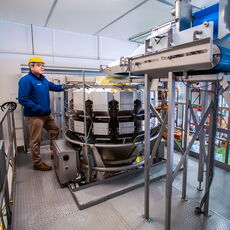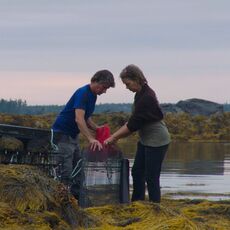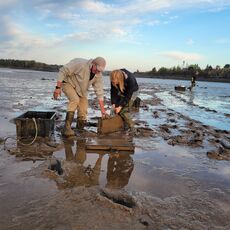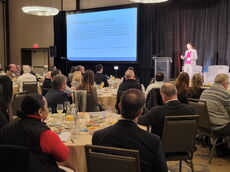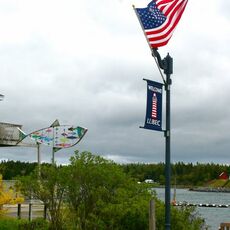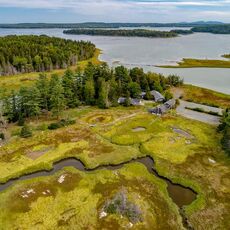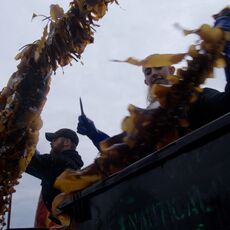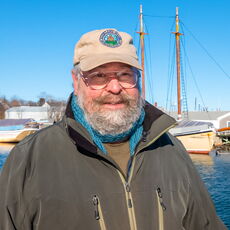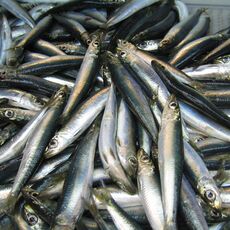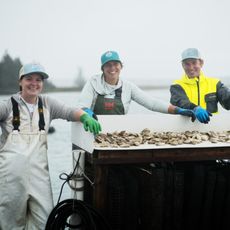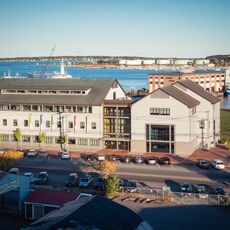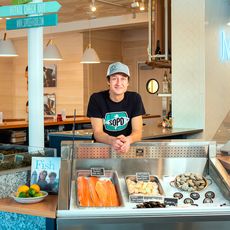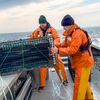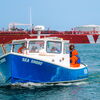Processing Your Payment
Please do not leave this page until complete. This can take a few moments.
- News
-
Editions
-
- Lists
-
Viewpoints
-
Our Events
-
Award Honorees
- 2025 Business Leaders of the Year
- 2025 Outstanding Women in Business
- 2024 40 Under 40 Honorees
- 2024 Women to Watch Honorees
- 2024 Business Leaders of the Year
- 2023 NextUp: 40 Under 40 Honorees
- 2023 Women to Watch Honorees
- 2023 Business Leaders of the Year
- 2022 NextUp: 40 Under 40 Honorees
- 2022 Women to Watch Honorees
- 2022 Business Leaders of the Year
-
-
Calendar
-
Biz Marketplace
- News
-
Editions
View Digital Editions
Biweekly Issues
- September 22, 2025
- September 8, 2025
- August 25, 2025
- August 11, 2025
- July 28, 2025
- July 14, 2025
- + More
Special Editions
- Lists
- Viewpoints
- Our Events
- Calendar
- Biz Marketplace
Fisheries & Marine
-
Rise of the robots? Automation is transforming the workplace — with some headscratching
Laurie Schreiber Updated: March 7, 2022More Maine companies are looking to automated systems to speed operations, grow capacity, and in some cases fill in for workers they can’t find. But those aren't the only benefits, the businesses are discovering.
Laurie Schreiber Updated: March 7, 2022Go-to-market guide aims to help seafood farmers navigate supply chain challenges
Staff March 1, 2022“When the pandemic hit, our distribution chain changed, probably forever,” said one seafood farmer. The industry faces supply chain challenges while consumer demand grows.
Staff March 1, 2022Maine to receive $16M for wildlife conservation and recreation
Staff February 18, 2022The new funding will expand resources for outdoor recreation and support conservation programs in Maine.
Staff February 18, 2022Nonprofits band together to showcase Downeast as tech and life science hub
Staff February 17, 2022The region is home to over 60 life science and technology entities. The goal is to spark more collaboration, innovation and economic development.
Staff February 17, 2022Mainebiz '5 on the Future' panel sees critical fixes needed if state is to attract workers
Jessica Hall February 15, 2022Panelists at the Mainebiz "5 on the Future" forum Tuesday said the state needs to tackle big-picture problems like child care, housing, transportation and broadband access, in order to attract more workers.
Jessica Hall February 15, 2022Maine's 2021 lobster catch shattered records for value as prices, landings increased
Jessica Hall Updated: February 15, 2022Last year's harvest was the most valuable in the history of the fishery, reaching $725 million. Much of the increase was driven by soaring demand and higher prices, but the volume of landings was up too.
Jessica Hall Updated: February 15, 2022Lubec’s fishing fleet needs a safe harbor, but bids for creating one were higher than expected
Laurie Schreiber Updated: February 11, 2022In 2019, the town was awarded $19.6 million for construct a breakwater and other infrastructure to protect the fleet in inclement weather.
Laurie Schreiber Updated: February 11, 2022Zoning proposal may help revive Bar Harbor's dormant oceanarium
Laurie Schreiber February 8, 2022Originally constructed in the 1960s, the educational aquarium on 19.7 acres includes a salt marsh and lobster hatchery. But the facilities need upgrades for “place-based education and conservation.”
Laurie Schreiber February 8, 2022With $383K grant, aquaculture ‘pioneers’ program aims to grow workforce
Staff February 3, 2022Workforce training is top of mind in Maine’s aquaculture industry. A new program will provide paid internships.
Staff February 3, 2022The ‘last 20 miles’: Real estate boom, new demands threaten Maine’s working waterfront
Jessica Hall Updated: February 7, 2022Some critics see commercial development as the biggest danger to Maine's working waterfronts. Some critics see climate change that way. Other people are trying to find a middle ground.
Jessica Hall Updated: February 7, 2022Leader of Stonington fisheries nonprofit reflects on career, lessons learned
Laurie Schreiber February 1, 2022The intersection of science, policy and community creates opportunities for thriving fisheries, says Paul Anderson, who will soon retire as executive director of the Maine Center for Coastal Fisheries.
Laurie Schreiber February 1, 2022Maine fishing captain, crew indicted on fraud charges over 2.6 million pounds of catch
William Hall Updated: January 31, 2022The owner and crew of the Western Sea caught herring for years without reporting it, making hundreds of thousands of dollars, federal prosecutors claim. They also say dozens of falsified reports were filed to cover up the illegal sales.
William Hall Updated: January 31, 202210 startups to vie for 'Greenlight Maine' glory in Season 7
Renee Cordes Updated: January 31, 2022Two Maine food entrepreneurs will kick off the new season of the TV business-pitch series on March 24. A total of 10 contestants are in the running.
Renee Cordes Updated: January 31, 2022Report: $15M investment needed to bolster Maine aquaculture over next decade
Staff January 26, 2022Maine's aquaculture industry is becoming a driver of coastal economies, and a new plan details growth opportunities to continue that momentum.
Staff January 26, 2022With $500K in federal funds, GMRI to ramp up training for Maine's aquaculture industry
Jessica Hall Updated: January 25, 2022The Gulf of Maine Research Institute has been awarded $500,000 to create a Maine aquaculture workforce training program that will help students pursue careers in the growing field.
Jessica Hall Updated: January 25, 2022SoPo’s mojo: Retail development takes off in South Portland
Renee Cordes Updated: January 24, 2022Retail development is booming in the state's fourth-largest city, from walkable waterfront neighborhoods to the sprawling shopping plazas of the Maine Mall area.
Renee Cordes Updated: January 24, 2022
Today's Poll
Sponsored by: Kennebunk Savings Bank
With the official end of summer this past weekend, we're taking a look back at how the season unfolded.
Back in early August, we asked how the summer tourism season was going — and at the time, the majority of respondents told us it could be better. And remember, the season started very rainy and ended amid a drought.
Now that the season has wrapped up, we're checking in again to see how things ended. Did things improve? Did tourism pick up later in the summer, or did the season fall short of expectations?
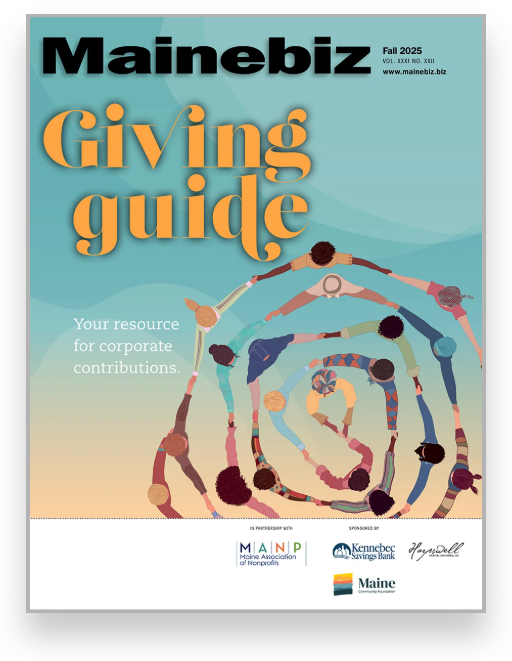
The Giving Guide
The Giving Guide helps nonprofits have the opportunity to showcase and differentiate their organizations so that businesses better understand how they can contribute to a nonprofit’s mission and work.
Learn More
Work for ME
Work for ME is a workforce development tool to help Maine’s employers target Maine’s emerging workforce. Work for ME highlights each industry, its impact on Maine’s economy, the jobs available to entry-level workers, the training and education needed to get a career started.
Learn More
Groundbreaking Maine
Whether you’re a developer, financer, architect, or industry enthusiast, Groundbreaking Maine is crafted to be your go-to source for valuable insights in Maine’s real estate and construction community.
Learn more-
The Giving Guide
The Giving Guide helps nonprofits have the opportunity to showcase and differentiate their organizations so that businesses better understand how they can contribute to a nonprofit’s mission and work.
-
Work for ME
Work for ME is a workforce development tool to help Maine’s employers target Maine’s emerging workforce. Work for ME highlights each industry, its impact on Maine’s economy, the jobs available to entry-level workers, the training and education needed to get a career started.
-
Groundbreaking Maine
Whether you’re a developer, financer, architect, or industry enthusiast, Groundbreaking Maine is crafted to be your go-to source for valuable insights in Maine’s real estate and construction community.
ABOUT
NEW ENGLAND BUSINESS MEDIA SITES
No articles left
Get access now
In order to use this feature, we need some information from you. You can also login or register for a free account.
By clicking submit you are agreeing to our cookie usage and Privacy Policy
Already have an account? Login
Already have an account? Login
Want to create an account? Register
This website uses cookies to ensure you get the best experience on our website. Our privacy policy
To ensure the best experience on our website, articles cannot be read without allowing cookies. Please allow cookies to continue reading. Our privacy policy
